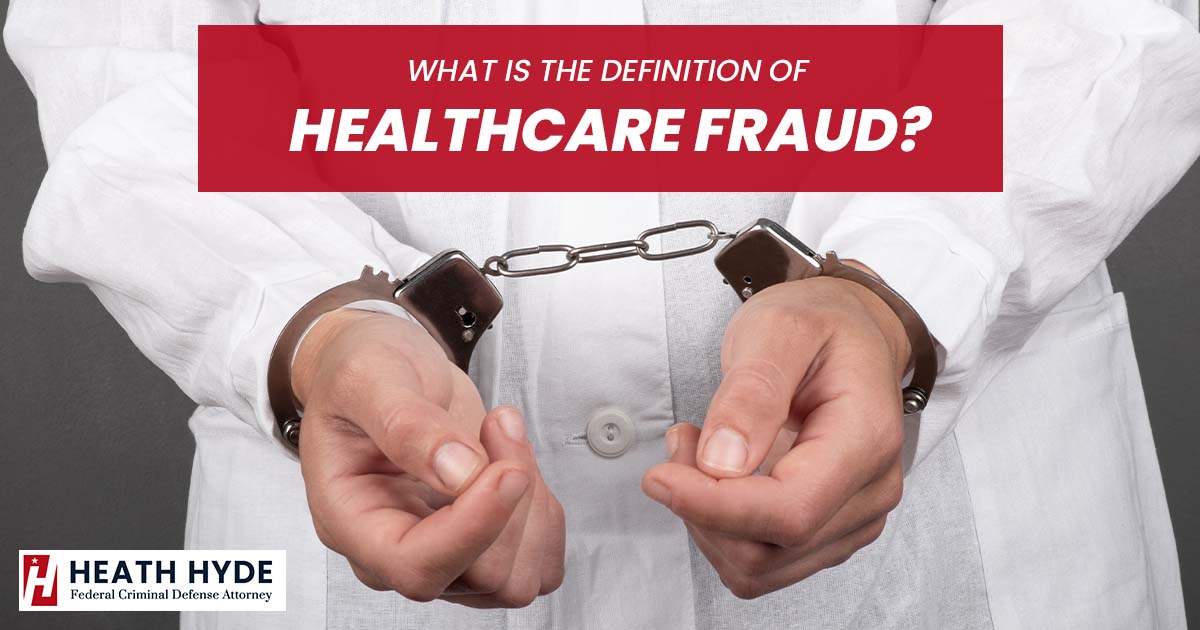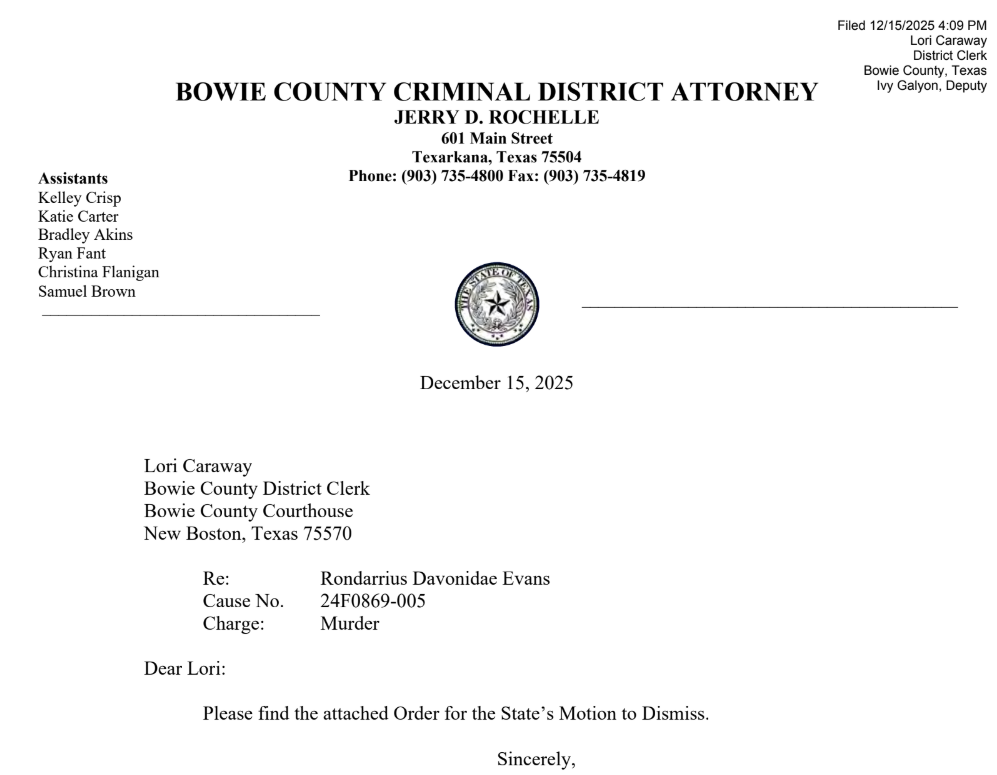Healthcare fraud can be committed by anyone (even a corporation) who knowingly and willingly implements, or attempts to execute, a conspiracy to defraud any healthcare benefit program.
Here are several examples:
- Medicaid fraud
- Medicare fraud
- Prescriptions and dispensing that are unlawful
- Billing for services that were not rendered or that were not medically necessary
- Falsely certifying a patient’s homebound status (i.e., home health care fraud)
- Paying for patient or service recruiting (Anti-Kickback and Stark)
- Unbundling and upcoding
- Service dates that are incorrect
- Misrepresenting a service provider
- Deductibles and/or co-payments are waived.
- Billing for prescriptions that were never supplied by a pharmacy
- Inaccurate diagnosis or procedure reporting
- Services being overused
- Prescription medicine issuing that is false or unneeded.
- Buy-back of prescription drugs
Healthcare fraud can be prosecuted civilly under the False Claims Act (31 USC 3729-3733), or criminally under 18 USC 1347 and 1349. (Health Care Fraud and Conspiracy to Commit Health Care Fraud).
(While this advice focuses on criminal charges under 18 U.S.C. 1347 and 1349, clients should be aware that the government may commence parallel civil actions that are under seal at the time criminal charges are filed.)
Why Is It Necessary To Hire a Healthcare Defense Attorney Rather Than a Regular Criminal Defense Lawyer?
Criminal allegations of healthcare fraud are unlike any other criminal charges that a corporation or individual client may face. The federal healthcare regulatory system in the United States is complicated, and most criminal defense attorneys are unaware of its complexities.
Being a healthcare fraud attorney necessitates a thorough understanding of healthcare regulations, Medicare guidelines, and criminal statutes, as well as OIG administrative rules and procedures.
Attorneys should not represent a corporate or individual client accused of healthcare fraud unless they have the necessary knowledge and experience in this area of the law, according to the American Bar Association Model Rules of Professional Conduct. Sometimes, regular criminal defense lawyers fail to remember this.
Furthermore, deadlines, notification obligations, collateral implications, and legal hazards abound in this intricate area of federal law, trapping practitioners who are not well-versed in healthcare fraud defense.
At every stage of the criminal proceedings, a healthcare fraud defense attorney must review multitudes of data and have the relevant experts available. Formal allegations of healthcare fraud can be costly to defend, but they can potentially be avoided or delayed by conducting an intensive inquiry early on.
A Healthcare Fraud Case’s Anatomy
There are potentially hundreds of options for federal prosecution, but claims of healthcare fraud usually take one of two forms.
For starters, the accusations could be the result of a referral for inquiry from a state, local, or regulatory entity, such as the Office of Inspector General (OIG) or a Medicare audit. A regulatory entity detects fraud during a normal pre-payment or post-payment audit of a physician, healthcare provider, or healthcare organization. The regulatory authority would then send the case to the Office of the Inspector General for further inquiry.
The OIG has the option of pursuing civil recoupment or criminal charges under healthcare fraud legislation. If criminal charges are sought, the OIG will report the case to the Department of Justice, which will conduct a criminal investigation and pursue an indictment with the help of the FBI and DOJ.
The OIG or FBI acquires information of criminal activity from a cooperating source or a Qui Tam relator in the second stage of the inquiry. A web of healthcare fraud activities is being investigated using cooperating sources, in which a number of companies, practitioners, and/or physicians are accused of conspiring to cheat the federal government.
In exchange for a reduced penalty during their own criminal prosecution, cooperating sources agree to offer information to the authorities. This creates a strong incentive for people who have been charged with healthcare fraud to supply information on people who may or may not have been involved in any fraudulent behavior.
A Qui Tam suit, which is a lawsuit filed by a private individual (called a “relator”) to recover for fraud, can also result in charges that require the assistance of a healthcare fraud attorney. The relator can earn a share of the ultimate recovery if the Qui Tam litigation is successful, which gives a strong incentive to report fraudulent activities.
While all Qui Tam proceedings begin as civil cases, when the government deems the conduct is criminal in nature, they frequently convert into criminal investigations.
When a case stems from a Medicare audit, the attorney’s priority should be to resolve the Medicare audit (MAC, RAC, CERT, or Program Integrity Audit) before referring the matter to the OIG in order to avoid criminal charges. Given the complexities of healthcare regulatory investigations, attorneys must be familiar with Medicare audits and how they may affect the start of criminal charges.
During an audit, the provider may give the auditor with facts to support the medical necessity of services rendered. In the event that a claim is denied, an appeal can be filed at any point in the claims process, up to and including a federal district court.
Any declaration made in defense of a Medicare audit might bind the practitioner or the organization in subsequent criminal prosecutions. During the settlement of an audit, an acknowledgment of misconduct can potentially lead to criminal prosecution. This is why it’s critical for the practitioner or organization to hire an attorney (or a team of attorneys) who can successfully defend the audit while also having enough experience defending healthcare fraud allegations to avoid tying the company to a poorly thought-out defense.
The case can be submitted to the OIG if the auditor (Medicare contractor) believes fraud has been committed after the inquiry is completed. This is the first indication that criminal charges may be pursued.
In general, the difference between cases prosecuted and cases handled civilly by the OIG is whether the practitioner or healthcare organization knew, or should have known, that the claims were false or fraudulent.
If the matter originated as a Qui Tam action, the Defendant will almost certainly face a sealed civil lawsuit. This is critical when assessing the criminal case’s resolution because the criminal case’s resolution does not always mean that all claims in the simultaneous civil Qui Tam case will be resolved. Given the regularity of parallel civil procedures, attorneys must be knowledgeable with the defense of Qui Tam lawsuits when fighting Health Care Fraud allegations.
Warrant for Search
The execution of a search warrant is frequently the first indication that a health care firm is under investigation by federal authorities (OIG, FBI, DEA).
Early in the morning, when personnel and patients are arriving, search warrants are typically conducted. Federal agents will form a ring around the building and use a search warrant to gain entry. They will attempt to reach the owner or manager on the premises and will conduct an instant interview with the owner or manager. Other agents will try to question workers and patients on-site right away, as well as remove any evidence found on the premises.
Prior to agreeing to an interview, the owner should immediately call a healthcare fraud defense attorney and acquire legal assistance.
During the search, owners, management, and other employees must be careful of Federal Obstruction of Justice Statutes and not try to destroy, hide, or make false statements to the authorities. Once a healthcare fraud defense attorney has been contacted, the lawyer can notify staff and management of their legal rights and begin the process of obtaining an independent attorney. During the inquiry, the defense counsel can also contact federal investigators to help protect privileged material and avoid any charges of obstruction.
If a search warrant is being carried out, it’s likely that arrest warrants for the owners, physicians, and other personnel have been obtained. If this is the case, it is critical to contact a healthcare fraud defense attorney so that preparations can be made to offer adequate representation to the employees.
Before taking the person apprehended to the nearest federal district court for arraignment before a magistrate on the complaint or indictment, federal agents will seek to question them.
Charges can be avoided if proper negotiations are conducted early on
It is also possible to avoid the government from filing healthcare fraud charges by engaging into a deferred prosecution agreement, or a similar deal, prior to being formally charged, depending on the value of the crime, government proof, and a number of other variables. This is especially true when a huge healthcare organization is involved, and the government is more concerned with recovering money than with prosecuting specific individuals.
A healthcare defense attorney‘s early inquiry into potential healthcare fraud can often prevent formal charges by uncovering flaws in the government’s case that may dissuade prosecution or, at the very least, diminish the cash worth of the alleged fraud.
Formal Health Care Fraud Charges Have Been Filed
If the federal government wishes to pursue criminal charges, it will either file a complaint or summon a grand jury and file a formal indictment.
An affidavit drafted by a law enforcement officer (FBI, DEA, or OIG) and filed with the court is known as a complaint. A federal judge may decide that there is enough evidence to file a complaint and formally prosecute the offender.
The case will next go to a preliminary examination, where the government must show that there is probable cause to suspect health care fraud occurred and that the defendant was culpable. The government, on the other hand, will almost always seek an indictment before a preliminary examination, as the federal government prefers not to place evidence on the record before a preliminary examination.
If the government decides to proceed with a grand jury, the prosecution will almost certainly send you and your alleged co-conspirators grand jury target letters alerting you that a grand jury has been convened and that you are the target.
When you get this target letter, you may rest assured that the government has completed a comprehensive investigation into your practice and has reason to suspect healthcare fraud. You must immediately contact a healthcare fraud defense attorney to aid you in this matter if you have not already done so.
Should I help the government by cooperating and providing information in exchange for a plea bargain?
The single most significant decision anyone accused of healthcare fraud may make is whether or not they should assist with the government investigation.
Your chances of succeeding at trial will be substantially harmed if you decide to provide a statement to the authorities. Federal prosecutors frequently seek assistance early in the process, and the first at the table usually gets the best deal. Waiting until all suspected co-conspirators have cooperated can leave you with few, if any, options, resulting in a less-than-favorable plea deal.
This, along with the fact that federal healthcare fraud sentencing standards are highly harsh and based on the claimed economic value of the fraud, creates a “prisoner’s dilemma” in which co-defendants are pitted against one another for the government’s benefit.
There is, however, a way to break the pattern.
Prior to or shortly after indictment, a qualified attorney can thoroughly study your case and provide you with a fair and honest estimate of your chances at trial.
If trial success is unlikely, early cooperation should be sought. An attorney cannot offer an adequate advice on cooperation until the alleged conduct, billing, and medical necessity of the service have all been thoroughly investigated.
Be skeptical of any lawyer who arranges a meeting with federal prosecutors without first performing a thorough investigation. This is a formula for catastrophe and will jeopardize your chances of defending yourself successfully.
What are the Consequences of Medical Fraud?
You might face a prison sentence of up to life in prison and a fine of $250,000 if you are convicted under the False Claims Act. The penalties for healthcare fraud, on the other hand, vary based on the statute in question, the dollar amount of the government’s loss, and a variety of other case-specific considerations.
The court will utilize the Federal Sentencing Guidelines to calculate a suggested punishment. The federal sentencing guidelines are heavily influenced by the amount of money involved in the alleged fraud.
While most defendants are concerned with the potential for jail time, there are numerous other life-altering and career-ending consequences to consider before entering a plea in a healthcare fraud case.
Corporate defendants face steep fines, OIG exclusion, and a corporate integrity agreement. Individual defendants face a slew of additional ramifications, particularly if they hold a medical license.
You should make sure that your lawyer is familiar with each of these penalties, as well as the administrative process for minimizing or avoiding them:
- Incarceration
- Probation
- Fines and restitution
- State license revoked
- DEA registration revoked
- Exclusion from Medicare
- Insurance Billing Privileges Denied
- Actions pertaining to staff privileges and credentials
- Asset forfeiture and seizure are two types of asset forfeiture
- Databank of National Practitioners
- Agreements on corporate ethics
Pre-Trial Planning
It cannot be overstated how important it is to conduct an early and thorough inquiry into the allegations of healthcare fraud.
This entails locating relevant documents and conducting in-depth interviews with all accessible personnel. Employees can be called before being interrogated by the government in specific situations to inform them of their rights and provide proper advice. Interviews with those involved in the billing process are also required.
“Pool counsel” can be consulted in some circumstances to provide legal aid to persons who aren’t being investigated. Individual defendants or targets must hire a private attorney to represent their interests during the inquiry or prosecution. Attorneys who represent several targets of a criminal inquiry are frowned upon by the majority of federal judges.
Attorneys should be conversant with the proper extent of a subpoena or civil investigative demand if the government issues one, and consider quashing any request that falls outside of that scope. To determine whether responsive materials are responsive to the request or privileged, all responsive documents must be properly examined. Efforts should be made to keep sensitive communications out of the hands of prying eyes.
Corporate counsel can negotiate a collaborative defense agreement, which will save all retained attorneys the cost of conducting multi-person investigations into the charges. A certified medical biller or a forensic auditor can also be hired to thoroughly evaluate Medicare billing data in order to assess compliance.
All electronic billing and internal memo correspondence must be scrutinized to see if there is evidence of a conspiracy or potentially exculpatory evidence that suggests lack of purpose or awareness on the part of particular individuals.
Trial counsel must create a good healthcare fraud defense plan at trial after conducting a thorough investigation, which involves writing and filing pre-trial motions to exclude evidence, dismiss the indictment, remove defendants, or find the material beneficial to the defense. In healthcare fraud cases, a surgical and efficient approach to pretrial motions will help build up an effective trial strategy or aid in a good plea agreement.
In order to prove the charges, the government generally employs huge volumes of statistical data. Through the right use of expert witnesses, healthcare fraud attorneys should attack the technique used to create this statistical data.
To establish the premise of their healthcare fraud charge, the government will also seek evidence from medical billers and analysts. Because many of these professionals are not healthcare professionals, their evidence can be easily refuted. They should not be allowed to testify as to the medical necessity of a particular surgery or claim.
Defending a Healthcare Fraud Case in Court
There is no one-size-fits-all approach to successfully defending healthcare fraud claims in court. The quality of the prosecution’s evidence, as well as the experience of the defense attorneys, defense strategy, and specialists, will determine whether the trial is won or lost.
However, a thorough investigation by educated attorneys, along with the correct expertise and good courtroom advocacy, will tip the scales in favor of the defendant.
Jury instructions must be written correctly in order to shift the odds in the defendant’s favor and preserve problems for appeal. Jury selection is crucial to obtaining a jury that is free of bias and strong public opinion against large organizations and individual fraud suspects. Jury questionnaires should be submitted as soon as feasible before the trial to determine the jury pool’s attitude toward the defendant (s).
The prosecution and defense experts will be the most essential witnesses at trial if medical necessity or overuse is a key issue. Expert cross-examination requires thorough investigation into the expert’s background in order to challenge the expert’s experience, education, or training.
A smart attorney will benefit from a thorough understanding of Medicare guidelines and the standard of care in a particular field when confronting the prosecution’s expert. The government regularly issues guidelines, opinions, bulletins, and rules that may conflict with one another in terms of proper usage and charging.
Likewise, the defense expert(s) must be thoroughly vetted, trustworthy, and knowledgeable enough to withstand the prosecution’s attacks. Retaining and preparing defense expert(s) should not be a last-minute decision, and expert counsel should be sought as early as possible in the case.
Finally, character witnesses may be required to portray the defendant’s character as that of a law-abiding citizen. This is the first time most defendants have been accused of criminal activity. Many are law-abiding citizens who participate in constructive community activities. Character witnesses should be a key component of your defense plan.
Why Do You Need a Compliance Strategy?
Evidence of a thorough compliance plan implemented prior to the alleged healthcare fraud is perhaps the greatest and most persuasive defense supplied by a healthcare fraud attorney.
Even the most ethical medical practitioners and healthcare organizations are now more than ever concerned about the consequences of charges of healthcare fraud. Even if you didn’t realize you (or your company) were defrauding the system, and even if you were acting on the advice of an attorney, you can be charged with healthcare fraud.
The Best Defense Is a Good Offense
A comprehensive and thorough compliance plan will assist you in detecting and disrupting fraudulent conduct in your profession or company. Evidence of a compliance plan can be used to establish that a company or individual practitioner did not have the necessary intent to commit healthcare fraud.
You may establish a solid compliance plan that can prevent claims of healthcare fraud, drug diversion, and overbilling, and lessen liability, with the help of a qualified healthcare attorney who is educated in healthcare fraud defense.
Protect Your Medical Practice
Let Heath Hyde’s National Healthcare Fraud and Criminal Defense Attorneys Create a Compliance Plan to protect you
Healthcare fraud defense is a complicated field of law that necessitates in-depth, specialized understanding of constantly changing rules and regulations. A solid defense against formal healthcare fraud allegations can be costly, but it can be lessened by an early aggressive inquiry to prevent or preempt official charges.
Furthermore, if a compliance strategy is executed early enough, it may be possible to avoid or reduce criminal and civil fines for claimed violations. Finally, a holistic defense of a healthcare fraud charge requires careful management of collateral repercussions, parallel civil processes, and forfeiture proceedings.
The national healthcare fraud defense attorneys at Heath Hyde are available for you if you or your company is facing accusations, or if you want to establish a compliance plan.
Heath Hyde, P.C. is a national health care law practice that focuses primarily on the defense of health care professionals and small to mid-sized healthcare businesses in the United States. Call us at 903.439.0000 or submit an online contact form for a free consultation today.






